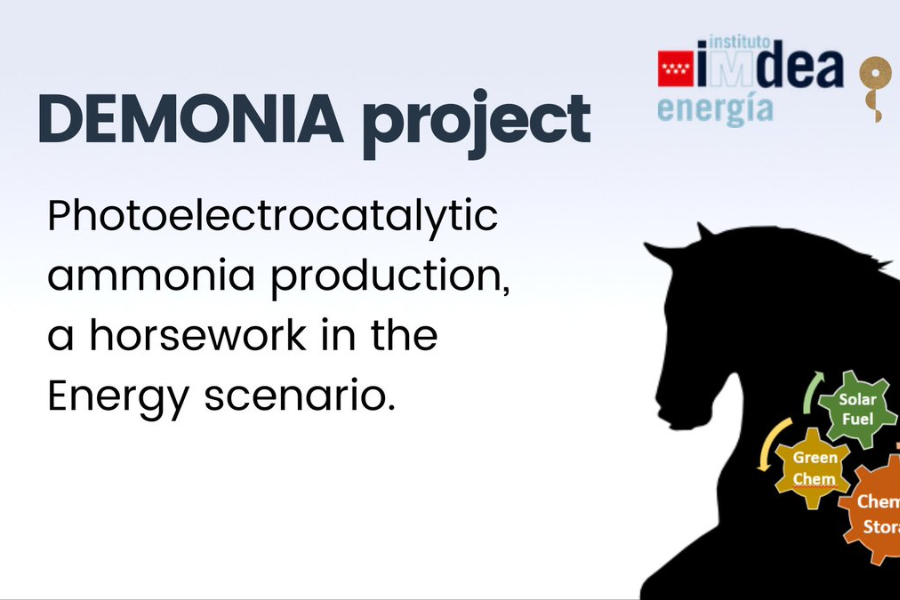IMDEA Energy moves towards the production of solar ammonia in the framework of the DEMONIA project
The growing global demand for energy is contributing to a relentless increase in carbon dioxide emissions. Finding economical and fossil-free ways to supply energy has become one of the major challenges of this century.
In this context, ammonia is postulated as an emission-free fertilizer, fuel and energy store, with a potential key role in the transition towards a sustainable economy.
The DEMONIA project awarded to IMDEA Energy seeks to address these challenges by developing a scalable and environmentally friendly photoelectrocatalytic device for the production of solar ammonia.
To do so, researchers at the institute will use a new generation of hybrid heterostructures based on Conjugated Porous Polymers, which have not been studied for ammonia production until now. These materials are expected to outperform conventional photoelectrodes, leading to a higher conversion of nitrogen to ammonia.
Thus, the project, which has a duration of 18 months, will evaluate the feasibility of this novel photoelectrochemical approach for the generation of solar ammonia with the aim of accelerating the development of this technology for its access to the market in the near future, in sectors such as agriculture, transportation, chemical or pharmaceutical industry.
DEMONIA is a Proof of Concept (PoC) grant from the European Research Council (ERC).



